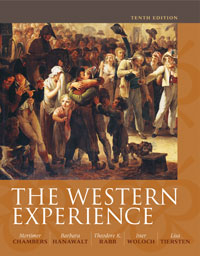| |
Answer choices for questions
1
through
10 | | A) | Tales, songs, and adages passed on orally that were the core of traditional popular culture.
| | B) | Social gatherings, usually organized by elite women, that sought to promote discussion of Enlightenment ideas.
| | C) | A group of French intellectuals who used rational inquiry to advocate intellectual and religious freedom and a variety of practical reforms.
| | D) | Belief in the existence of a supreme being but arising from reason rather than revelation.
| | E) | An artistic movement that rejected classical aesthetic forms and norms, and which emphasized personal experience, emotion, or spirituality.
| | F) | A literary and artistic movement in Germany that emphasized strong artistic emotion; a precursor of the Romantic movement.
| | G) | Forums outside the royal court, such as newspapers, salons, and academies, in which the educated public could participate in debate on the issues of the day.
| | H) | The science of the earth's development accomplished through the study of geology, zoology, and botany.
| | I) | Rousseau's idealized concept of popular consensus, under which individual interests are subordinated to the public good.
| | J) | A style of art and poetry inspired by themes from antiquity and its conceptions of form and beauty.
|
|
|





